Michael L. Chrisman
(Independent Scholar)
“Early Bindings of the Gutenberg Bible”
[Posted on 15 January 2023, with update]
Abstract of Paper
presented at the 57th International Congress on Medieval Studies
(Kalamazoo, 2023)
Session on “Bound But Not Gagged: The Eloquence of Medieval Book Bindings”
Part 1 (of 2): “The Eloquence of Medieval Book Bindings from German Lands”
Organized by William H. Campbell
Co-organized by Mildred Budny
Co-Sponsored by the RGME and
the Schoenberg Institute for Manuscript Studies (SIMS)
2023 Congress Program
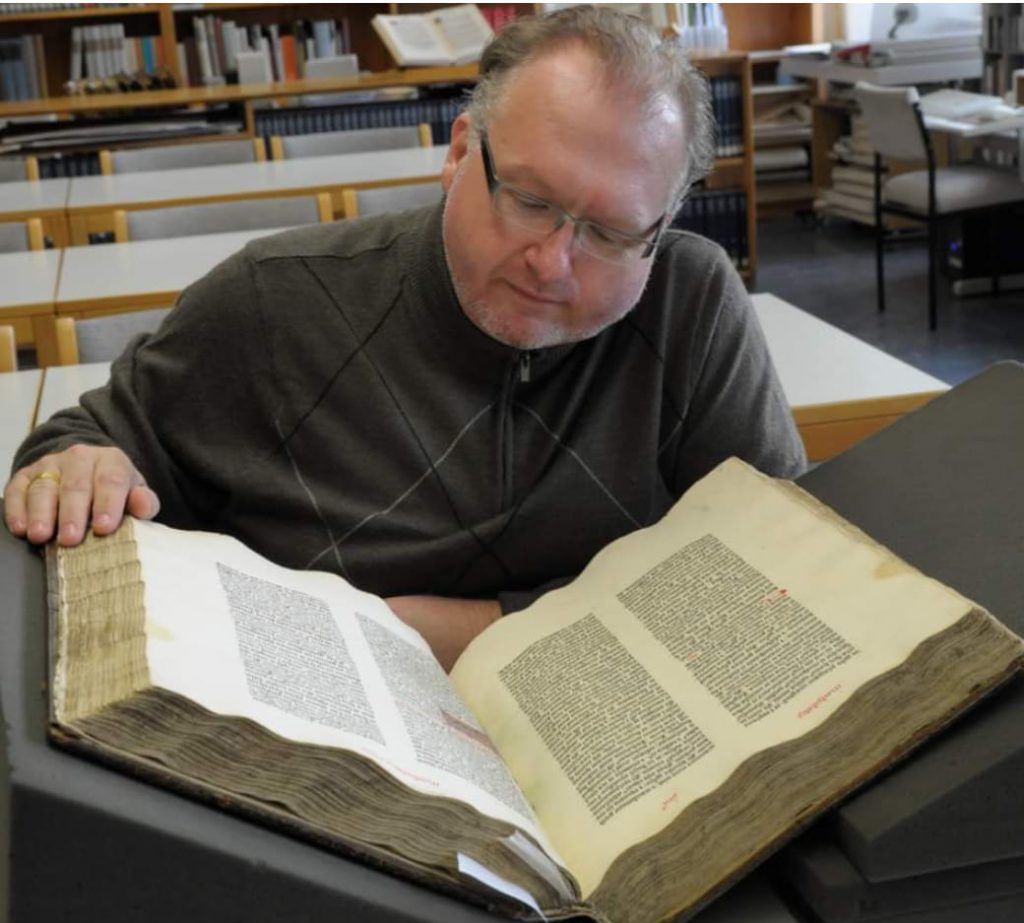
Michael inspects a Gutenberg Bible at the Gutenberg Museum, Mainz. Volume II of the Solms-Laubach Gutenberg Bible. Photography © 2012-2022/2023 Michael L. Chrisman, reproduced by permission.
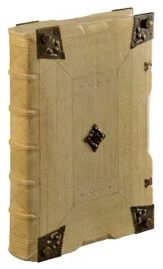
Binding in period style made for the 1493 Nuremberg Chronicle. Photography by Michael L. Chrisman, reproduced by permission.
*****
Abstract
In my presentation, I will share the various early binding constructions of The Gutenberg Bible (Mainz, Germany, circa 1450–1456).
My studies and examinations of eight of the original bibles, and further lengthy research, have taught a great deal regarding the overall binding constructions.
*****
Gallery
A selection of images demonstrates both original and reconstructed specimens. Among them are examples of binding books in historically-correct wooden boards from 15th- and 16th-century European tradition.
Michael’s permanent exhibition on the Fourth Floor of the Gutenberg Museum, Mainz, Germany.
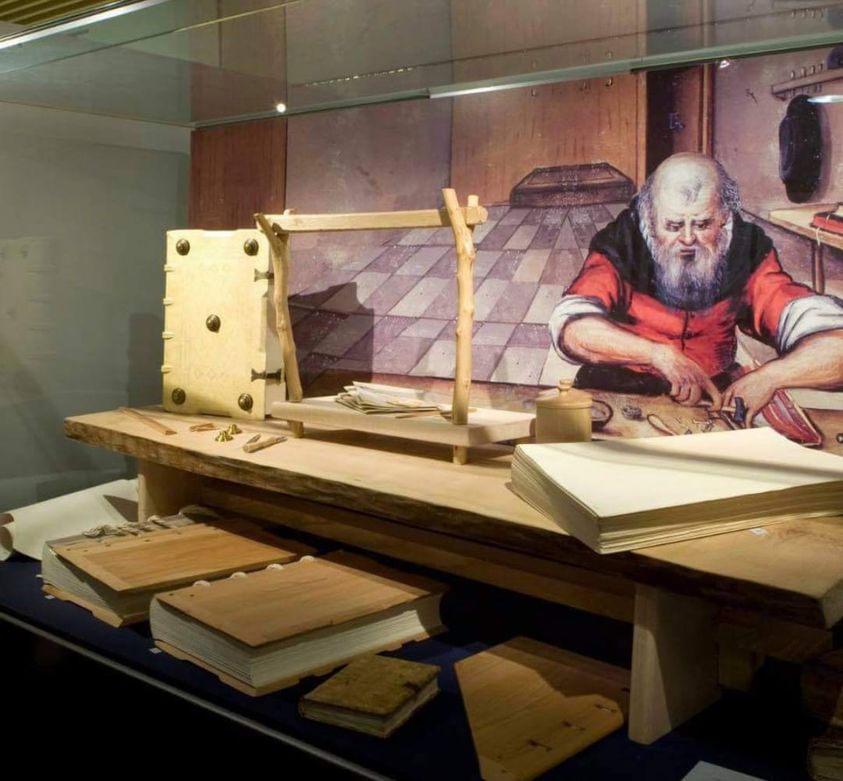
Permanent Exhibition on the Fourth Floor of the Gutenberg Museum, Mainz. Photography by Michael L. Chrisman, reproduced by permission.
“At my workbench in 2013, preparing the bronze metal furniture for the 1493 Nuremburg Chronicle”.
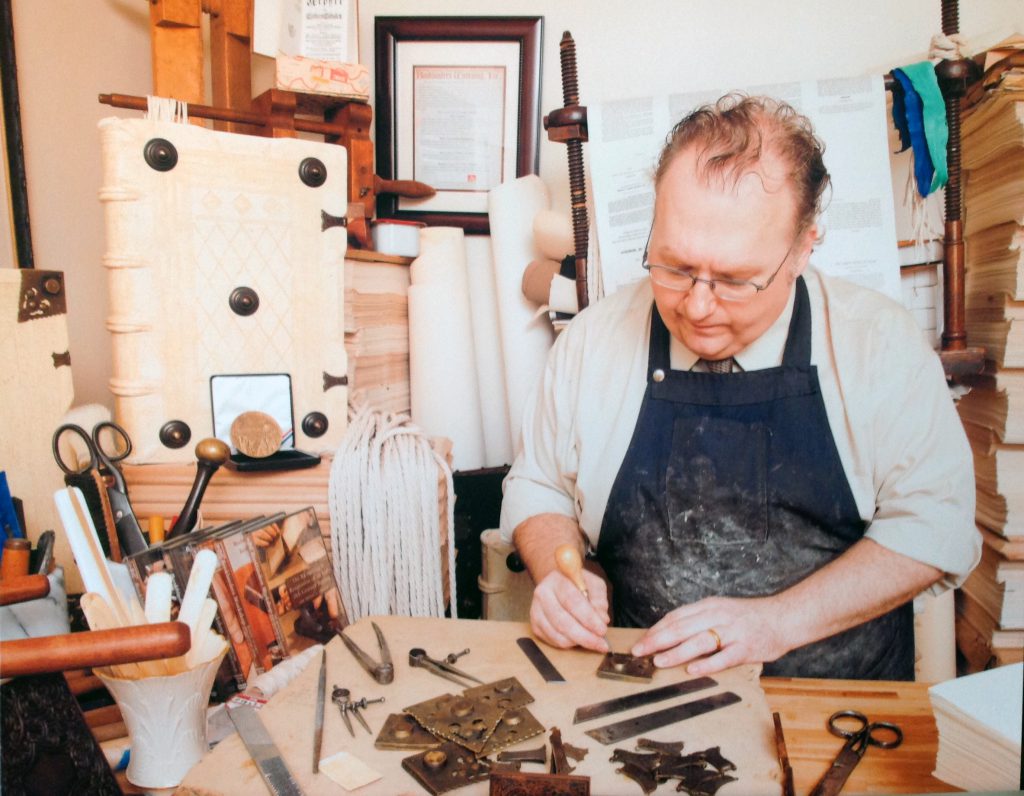
The binder at work. Photography by Michael L. Chrisman, reproduced by permission.
Two-volume period-style binding made in 2012 for a 1961 Gutenberg Bible Facsimile. Alum-tawed pigskin over beveled wooden boards and blind-tooled to historic precedent.
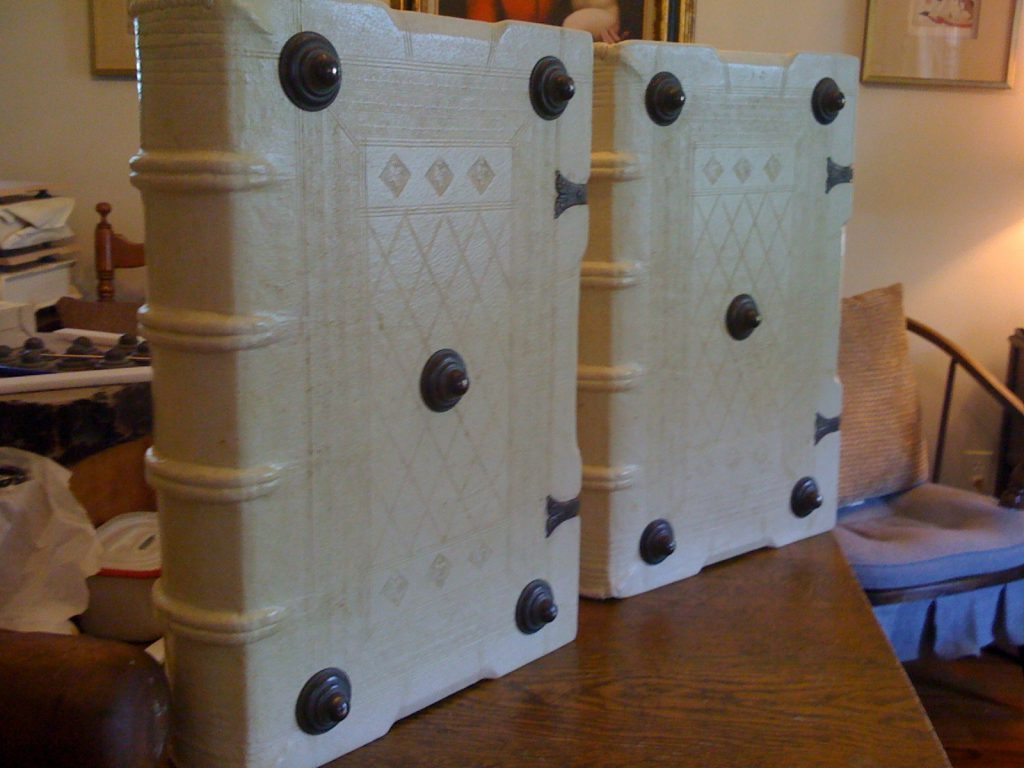
Photography by Michael L. Chrisman, reproduced by permission.
Hammer to secure the sewing cords with wedges.
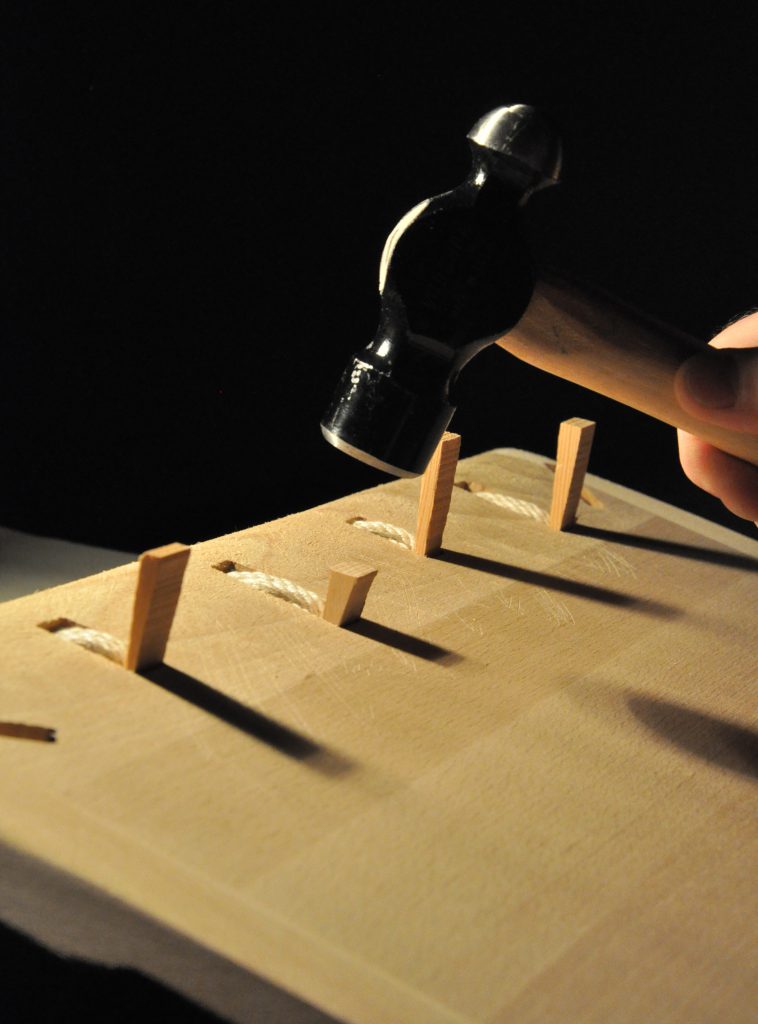
Fir-wood wedging on the sewing cords of a mid-16th-century replica binding. Photography by Michael L. Chrisman, reproduced by permission.
Sewing the braided endband with un-aged alum-tawed pigskin on an alum-tawed pigskin binding formed around heavy 15th-century style raised cords laced into wooden boards.
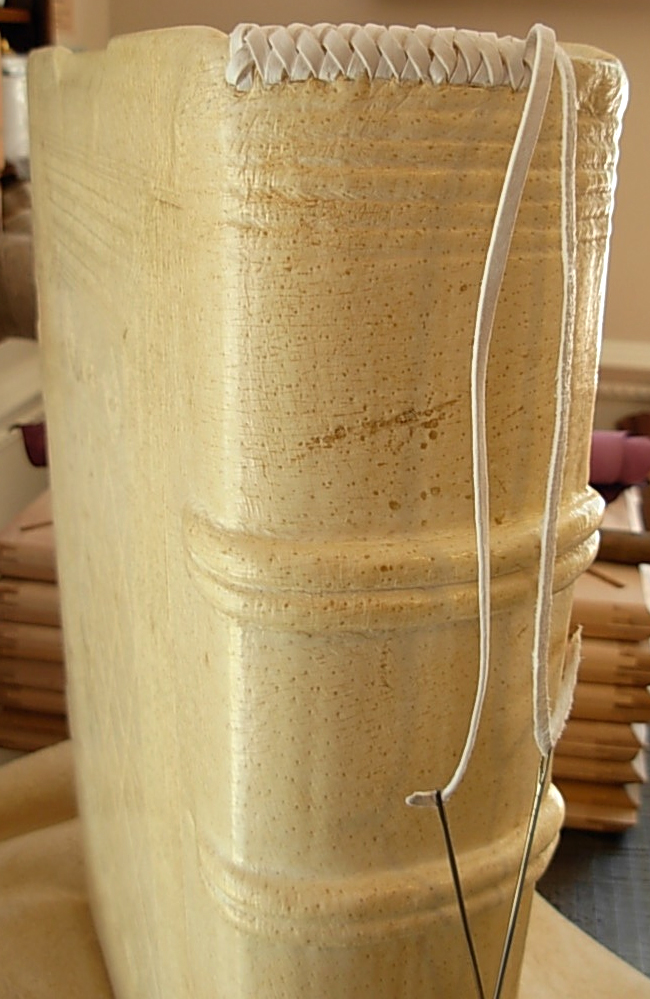
Sewing the braided endband. Photography by Michael L. Chrisman, reproduced by permission.
Michael at the Gutenberg-Museum Mainz on opening day.
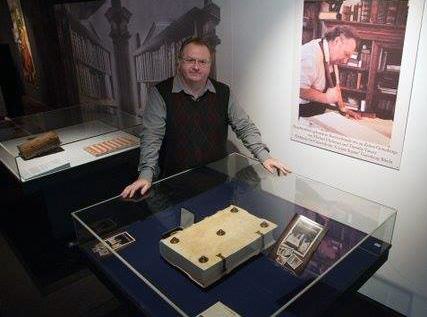
Michael beside one volume on display at the opening day of the exhibition at the Gutenberg-Museum Mainz. Photography by Michael L. Chrisman, reproduced by permission.
*****
Many images are displayed, for example, via Michael’s Photos. We thank Michael for his permission to reproduce his images here.
*****
Update: See also Antique Bookbinder.
*****
